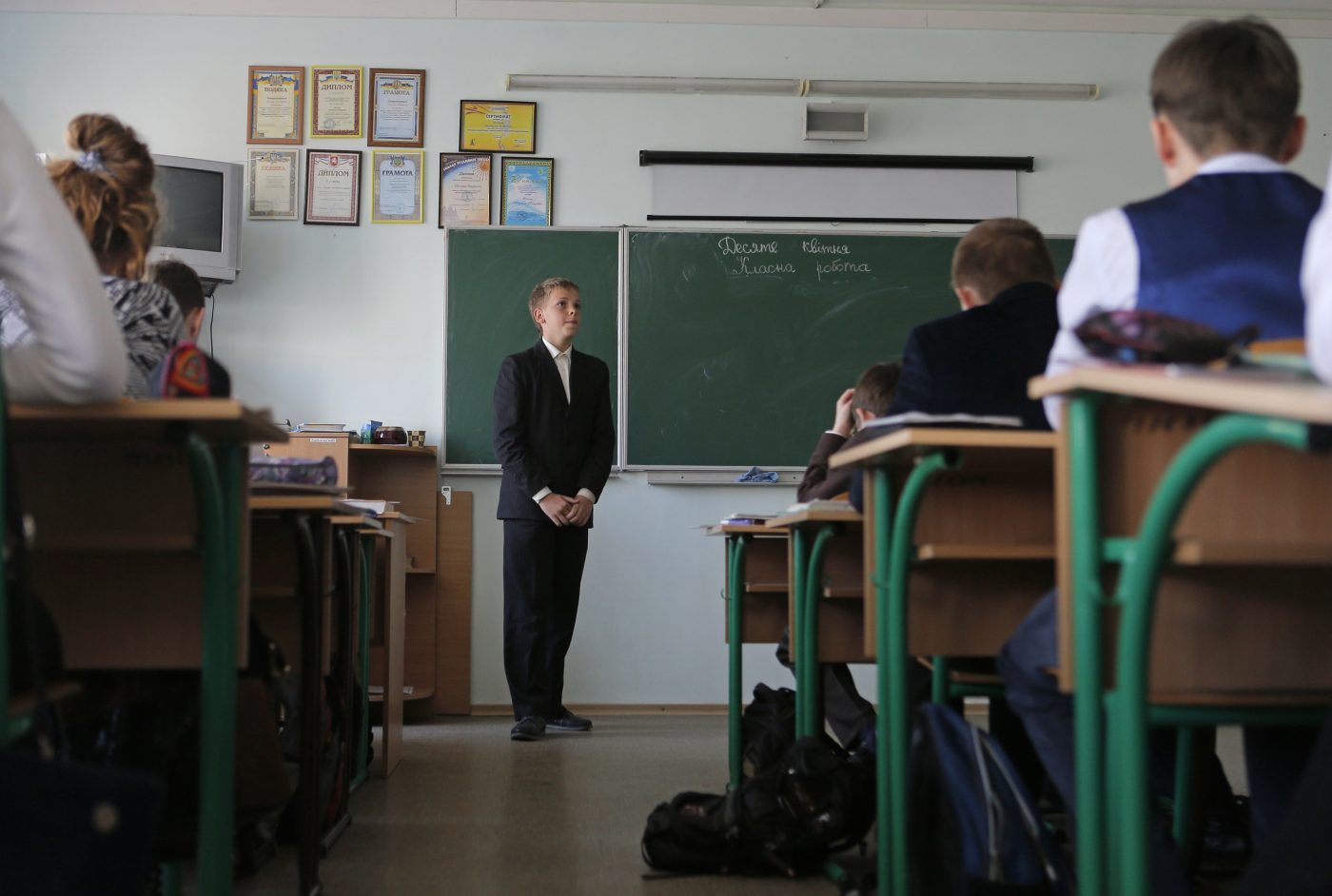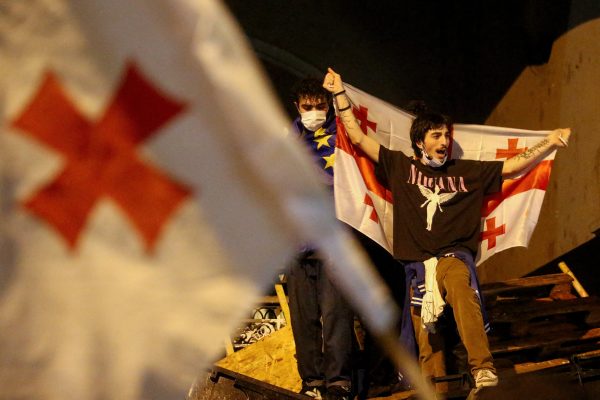My teacher of Ukrainian language and literature was strict and demanding, but thanks to her I learned the language and was able to go to university in Kharkiv. It was an ordinary school in Feodosia, eastern Crimea, eight years before the 2014 annexation. The majority of our class left the peninsula to study at universities elsewhere in Ukraine.
Today such teaching is a luxury for children in Crimea. Only 197 of the almost 300,000 pupils on the peninsula studied the Ukrainian language during the last academic year, according to Almenda, a Crimean group focused on the rights of children in the occupied territories.
Ukrainian used to be taught everywhere in Crimea, and at the time of the annexation 13,322 children, or 7.3%, were studying in schools where all subjects were taught in the language. Seven of these schools were in cities on the peninsula; none were in rural areas. The generation of children who were born in the nine years since the annexation are now at school, and some will finish without knowing any Ukrainian.
There is now an intensive effort within the Ukrainian government system to ensure that the moment liberation comes, there is a structure so that key elements of everyday life keep operating and do not simply stop. Crimea’s reintegration into the rest of Ukraine will encompass a wide range of challenges, from the public servants being readied to administer the peninsula, to other sensitive issues like justice, and the treatment of collaborators.
The question of language is intertwined with many of these issues and is exercising the Ukrainian authorities. It is one of the topics being discussed in the development of a strategy for the “cognitive de-occupation” of Crimea, which is intended to help people through the changes of mindset that will come with liberation and assist their integration back into the country as a whole.
“The language issue will remain a problem for five to seven years after the de facto de-occupation, as many residents of Crimea are used to communicating in Russian,” the strategy document says. “In order to avoid immediate psychological rejection, there should be a gradual Ukrainization of the public sphere in Crimea and special Ukrainian language courses should be widely available.”
Language will play an important role in re-establishing Ukrainian identity, and eventually, Crimea will be no different from any other part of the country, according to Tamila Tasheva, Permanent Representative of the President of Ukraine in the Autonomous Republic of Crimea.
“There will be a short — I emphasize short — transition period during which employees of the public sector and the service sector will be able to use the Russian language,” she said in an interview with the Ukrainian government’s Decentralization website. “But these workers will attend mandatory language courses and will eventually switch to Ukrainian.”
While people will have the right to speak any language they like at home and away from work, “everything related to the Ukrainian state and statehood in Crimea should sound Ukrainian,” Tasheva said.
Experts are comparing the curriculums children follow on the peninsula with those on the mainland to identify where most attention is required. There will need to be adaptive programs and different approaches for different groups, and in some cases, Ukrainian will need to be taught almost as a foreign language, education groups say.
“At secondary schools, for example, we can’t just go in and immediately introduce Ukrainian textbooks and start teaching in Ukrainian,” said Mariia Sulialina, head of Almenda. “The children wouldn’t understand what they were being taught. It has been nine years during which they haven’t studied the Ukrainian language.”
High school children will have further problems as they will need to deal with exams and applying to Ukrainian universities, while 18-20-year-olds who have already finished school will need language courses. There will also be provision for adults.
Teachers who stayed in annexed Crimea will have to re-train if the authorities in Kyiv reintroduce the Ukrainian system of education alongside the language, Sulialina said.
That process might involve switching children to online Ukrainian education or bringing curators into schools to oversee the use of online programs while Russian collaborators are weeded out of the teaching staff, and those who remain retrained. The main priority is that there is as little disruption to education as possible, Sulialina said.
It is important that teachers are suspended while their activity during the occupation is checked, she said. If all teachers were left in place without a process to assess their role in helping the Russian occupiers, it would lead to internal conflicts, she added, citing the example of the school she attended in Crimea.
“One of my class teachers took pictures with the flag of the self-proclaimed DPR, teachers advocated for the referendum, teachers brought Unarmiya [a Moscow-based patriotic movement which prepares children to serve in the Russian armed forces] into schools,” she said. “It’s hard for me to imagine going back to Yalta and seeing the same people working as teachers.”
Elina Beketova is a Democracy Fellow at the Center for European Policy Analysis (CEPA), focusing on the temporarily occupied territories of Ukraine. She worked as a journalist, editor, and TV anchor for various news stations in Kharkiv and Kyiv, and currently contributes to the translator’s team of Ukrainska Pravda, the biggest Ukrainian online newspaper.
Europe’s Edge is CEPA’s online journal covering critical topics on the foreign policy docket across Europe and North America. All opinions are those of the author and do not necessarily represent the position or views of the institutions they represent or the Center for European Policy Analysis.





